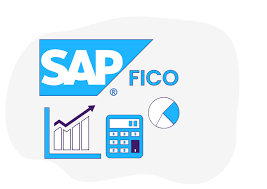SAP FICO is a Financial Accounting (FI) and Cost Controlling (CC) module in SAP ERP. Accounting is a broad subject, and this certification, which readily mixes with sales and distribution, plant and material management, production planning, and other fields, might offer up a wide range of possibilities for you to explore. Another advantage of earning this certification is that it provides a foundation for learning ideas from other modules. SAP certificates are available for SAP business objects, SAP business one, ERP, PLM, Netweaver, and other SAP applications. It might also be targeted to a certain technology, application, or stage of development.
What exactly SAP FICO module is
SAP FI is a critical component of all SAP deployments.
For external reporting, such as balance sheets and profit and loss statements, SAP FI (Financial Accounting) is utilized.
The SAP FICO Module works with a number of other SAP modules, including MM (Materials Management), SD (Sales and Distribution), PP (Production Planning), PM (Plant Maintenance), and PS (Plant Security) (Project Systems).
Through connectivity, the SAP FI (Financial Accounting) Module gets posts from other SAP modules such as Materials Management, Sales and Distribution, and Human Resource.
By using automated account determination, all accounting-relevant transactions conducted in Logistics (LO) are reported in real-time to Financial Accounting. This information can also be sent to Controlling (CO).
The sub-modules of SAP FI Modules are as follows:
The SAP Financial Accounting module is broken into various sub-modules, including
Accounts, Journals, Monthly Debits and Credits, Balance Sheet, and Recording All Business Transactions are all part of general ledger accounting.
Accounts Payable: The Accounts Payable department keeps track of and maintains all vendor financial data.
Accounts Receivable: The Accounts Receivable department keeps track of and maintains all customer accounting data.
Asset Accounting: Asset Accounting is used to manage the assets of your firm. SAP allows you to categorize assets and assign values to each asset type for depreciation calculations.
Bank Accounting: Bank accounting is used to keep track of all bank transactions in a system, including cash management.
Consolidation: Consolidation allows several entities within an organization's financial accounts to be combined. These financial statements give an insight of the company's overall financial situation.
Funds Management: Funds Management is in charge of managing your company's income and cost budgets, as well as keeping track of them in the area of duty.
Special Purpose Ledger: A special purpose ledger is a type of ledger that is used to define ledgers for reporting.
Travel Management: Travel Management is responsible for overseeing all aspects of travel, including trip planning and expenditure management.



